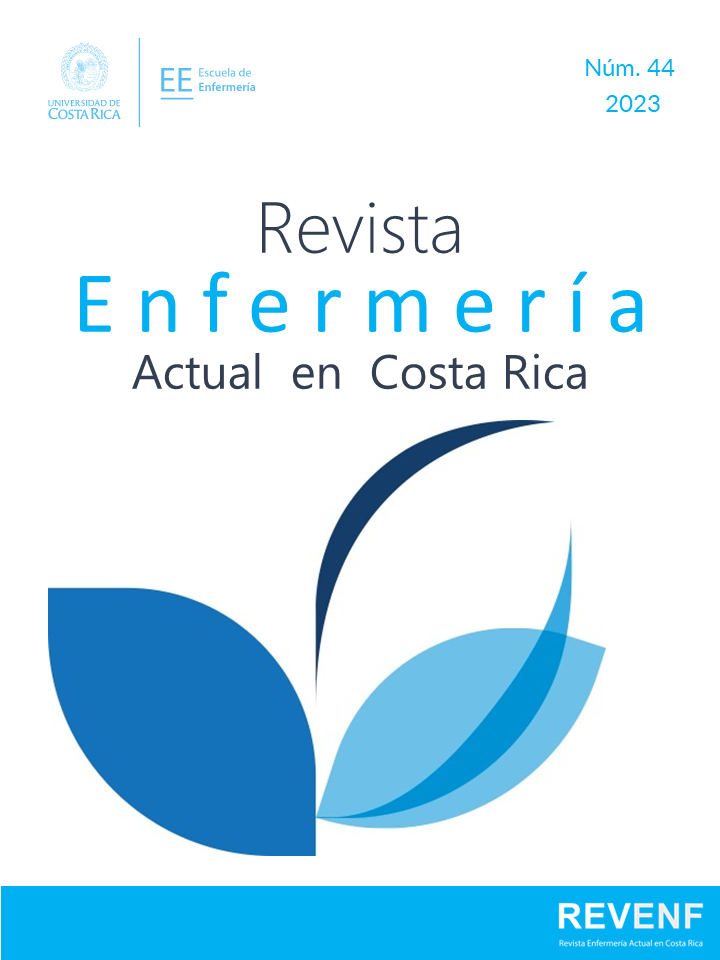Abstract
Introduction: Nurses have a fundamental role in the prevention of incurable sexually-transmitted infections; however, for their performance to be effective, quality education with adequate infrastructure is required.
Objective: To map out the worldwide studies that address the teaching of incurable sexually-transmitted infections to undergraduate nursing students.
Methodology: Scoping review protocol according to the Joanna Briggs Institute methodology. The search strategy will be applied to the Medical Literature Analysis and Retrieval System Online, Cumulative Index to Nursing and Allied Health Literature, Embase, Web of Science and Latin American and Caribbean Literature in Health Sciences databases, as well as to the gray literature databases (e.g., Research Gate, OpenGrey). This document will address those studies addressing the teaching of incurable sexually-transmitted infections aimed at undergraduate nursing students around the world; it will also consider the public access studies from 1981 to 2020 available. Two independent reviewers will screen the articles according to pre-defined inclusion criteria; they will also extract and analyze the data. The presentation of data will be through figures and tables according to the Preferred Reporting Items for Systematic Reviews and Meta-Analyses extension for Scoping Reviews.
Results: The results from this study will grant broad knowledge about the teaching of incurable sexually-transmitted infections to nursing students, as well as the methodologies used and their effectiveness.
Conclusion: This study can contribute to the improvement of methodologies, infrastructure, and teaching curricula of incurable sexually-transmitted infections to nursing students.
References
Ministério da Saúde (BR). O que são IST. Departamento de Doenças de Condições Crônicas e Infecções Sexualmente Transmissíveis [Internet]. 2020 [cited 2021 Ago 8]. Available from: http://www.aids.gov.br/pt-br/publico-geral/o-que-sao-ist
World Health Organization. Sexually transmitted infections (STIs) [Internet]. 2020 [cited 2021 Ago 8]. Available from: https://www.who.int/health-topics/sexually-transmitted-infections#tab=tab_1
World Health Organization. Sexually transmitted infections (STIs). Key facts [Internet]. 2019 [cited 2021 Ago 8]. Available from: https://www.who.int/en/news-room/fact-sheets/detail/sexually-transmitted-infections-(stis)
Silva AR, Padilha MI. Nursing academics and their self-care in relation to sexually transmitted diseases. Rev. enferm. atenção saúde [Internet]. 2016 [cited 2021 Ago 9];5(1):36-50. Available from: https://seer.uftm.edu.br/revistaeletronica/index.php/enfer/article/view/1745 doi: 10.18554/reas.v5i1.1745
Castro EL, Caldas TA, Morcillo AM, Pereira EMA, Velho PENF. Awareness and education regarding sexually transmitted diseases among undergraduate students. Ciênc. Saúde Colet [Internet]. 2016 [cited 2021 Ago 10];21(6):1975-84. Available from: https://www.scielo.br/j/csc/a/trKSmLBwFPd3LC4x64N4Tnf/?format=pdf&lang=pt doi: 10.1590/1413-81232015216.00492015
Cardoso BCR, Mesquita EBS, Costa GS, Junior JAMC, Goiano PDOL, Ferreira TRS. The knowledge of young people under the prevention of hiv/aids and other dsts. BJSCR [Internet]. 2017 [cited 2021 Ago 8];20(2):80-3. Available from: https://www.mastereditora.com.br/periodico/20171001_162832.pdf
Petry S, Padilha MI, Kuhnen AE, Meirelles BHS. Knowledge of nursing student on the prevention of sexually transmitted infections. Rev. bras. Enferm [Internet]. 2019 [cited 2021 Ago 10];72(5):1145-52. Available from: https://www.scielo.br/j/reben/a/nK3KPDjP8RL3zjnkW9wvVQd/?format=pdf&lang=en doi: 10.1590/0034-7167-2017-0801
Merenhque CC. Barreto CN, Cremonese L, Sehnem GD, Demori CC, Neves ET. Nursing students’ knowledge and behavior about prevention of sexually transmitted infections. Rev. Enferm. UFSM [Internet]. 2021 [cited 2021 Ago 9]; 11(e4):1-21. Available from: https://docs.bvsalud.org/biblioref/2021/04/1177371/43700-266679-1-pb.pdf doi: 10.5902/2179769243700
Pereira R, Lima MAC, Silva JG, Costa TA, Santos TO, Queiroz VBS et al. Sexually transmitted infections among health academics. Revista Eletrônica Acervo Científico. 2021; 19 (e5960):1-7. Available from: https://www.researchgate.net/publication/348766324_Infeccoes_sexualmente_transmissiveis_entre_academicos_da_area_da_saude doi: 10.25248/reac.e5960.2021
Paiva EMC, Ramos SCS, Martins NS, Nascimento MC, Calheiros AP, Calheiros CAP. Sexuality and sexually transmitted infections: analysis of health student training. R. pesq. cuid. fundam. Online [Internet]. 2021 [cited 2021 Ago 10];13:809-14. Available from: http://www.seer.unirio.br/cuidadofundamental/article/view/9190 doi: 10.9789/2175-5361.rpcfo.v13.9190
Peters MDJ, Godfrey C, McInerney P, Munn Z, Tricco AC, Khalil, H. Chapter 11: Scoping Reviews (2020 version). In: Aromataris E, Munn Z (Editors). JBI Manual for Evidence Synthesis, JBI [Internet]. 2020 [cited 2021 Ago 10] doi: 10.46658/JBIMES-20-12
Tricco AC, Lillie E, Zarin W, O’Brien KK, Colquhoun H, Levac D et al. PRISMA Extension for Scoping Reviews (PRISMA-ScR): Checklist and Explanation. Ann Intern Med. [Internet]. 2018 [cited 2021 Ago 10];169(7):467-73. Available from: https://www.acpjournals.org/doi/full/10.7326/M18-0850?rfr_dat=cr_pub++0pubmed&url_ver=Z39.88-2003&rfr_id=ori%3Arid%3Acrossref.org doi: 10.7326/M18-0850
Ministério da Saúde (BR). História da aids. Departamento de Vigilância, Prevenção e Controle das IST, do HIV/Aids e das Hepatites Virais [Internet]. 2021 [cited 2021 Ago 8]. Available from: http://www.aids.gov.br/pt-br/centrais-de-conteudos/historia-aids-linha-do-tempo
Flick U. Qualidade na pesquisa qualitativa. Porto Alegre: Artmed, 2009. 198 p.
Bardin L. Análise de conteúdo. São Paulo: Edições 70, 2016. 141 p.
Morse M, Field A. Qualitative Research Methods for Health Professionals. Thousand Oaks: Sage Publications, 1995. 254p.
Comments

This work is licensed under a Creative Commons Attribution-NonCommercial-ShareAlike 4.0 International License.
Copyright (c) 2023 Stefany Petry, Maria Itayra Padilha, Maiara Suelen Mazera, Amina Regina Silva


